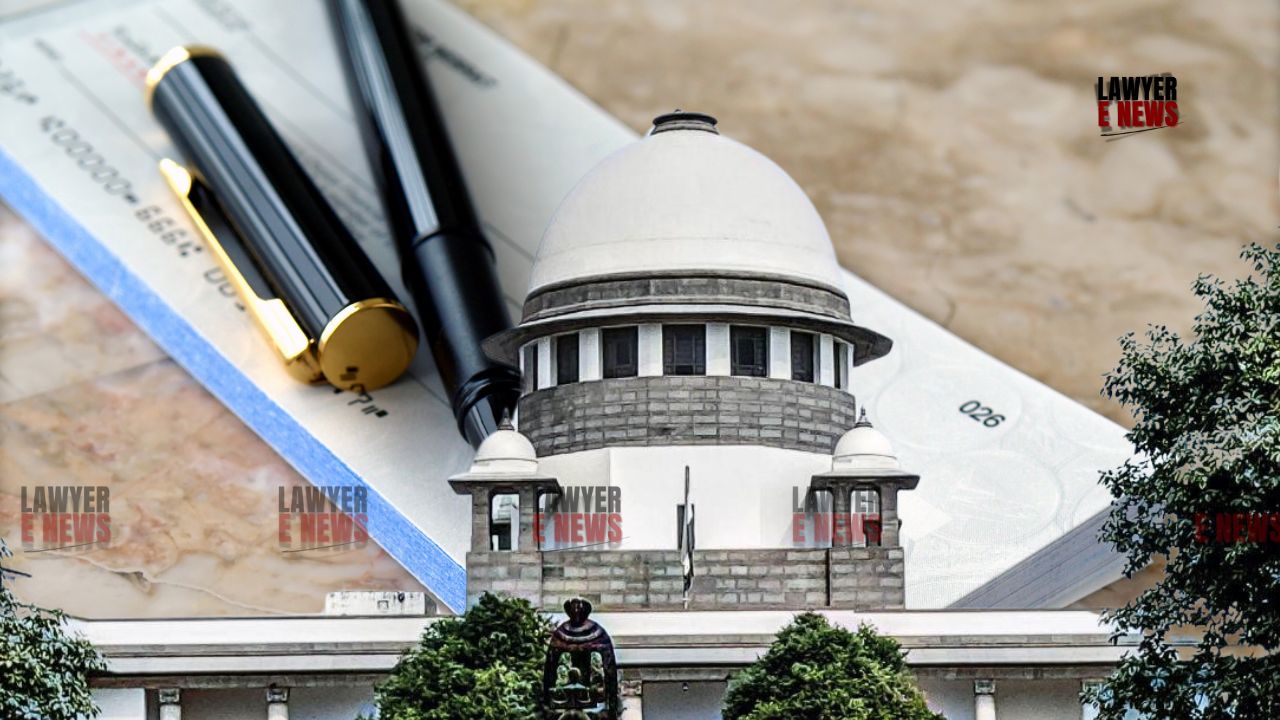-
by Admin
15 February 2026 5:35 AM



Supreme Court of India delivered a significant ruling in the case of A.S. Pharma Pvt. Ltd. vs. Nayati Medical Pvt. Ltd. & Ors., addressing the contentious issue of compounding an offence under Section 138 of the Negotiable Instruments Act (N.I. Act) without the complainant's consent. The Court ruled that such compounding requires the complainant's agreement, setting aside the Delhi High Court's earlier decision that had compounded the offence without the complainant’s consent.
A.S. Pharma Pvt. Ltd. filed Complaint Case No. 5564 of 2022 alleging an offence under Section 138 of the N.I. Act against Nayati Medical Pvt. Ltd. and others due to dishonored cheques. The respondents, upon receiving summons, showed willingness to settle the matter and filed an application under Section 320 of the Code of Criminal Procedure (Cr.P.C.) to compound the offence. However, the Trial Court dismissed this application on February 6, 2023.
Aggrieved by this order, the respondents approached the Delhi High Court seeking to quash the proceedings. The High Court, exercising its inherent powers under Section 482 Cr.P.C. and Section 147 of the N.I. Act, compounded the offence on the condition that the respondents deposit the cheque amount of Rs. 6,50,000 with 12% simple interest per annum and an additional Rs. 1,00,000 within eight weeks.
The key legal issue revolved around whether an offence under Section 138 of the N.I. Act could be compounded without the complainant's consent. The appellant contended that such offences are not compoundable under Section 320 Cr.P.C. without the complainant’s consent, and the High Court erred in invoking Section 482 Cr.P.C. and Section 147 N.I. Act to compound the offence without it. The respondents argued that Section 147 of the N.I. Act allows for compounding the offence without the complainant's consent if equitable compensation is provided.
The Supreme Court scrutinized the application of Section 482 Cr.P.C. and Section 147 N.I. Act by the High Court. The Court noted that while Section 482 Cr.P.C. grants inherent powers to the High Court to secure the ends of justice, this power cannot override the specific requirement of consent for compounding under Section 138 of the N.I. Act.
The Court emphasized that Section 147 of the N.I. Act, which states that offences under the Act are compoundable, does not empower the courts to compound such offences without the complainant’s consent. The Court referred to its previous ruling in JIK Industries Ltd. & Ors. v. Amarlal V. Jumani & Anr., which established that compounding requires the complainant's consent, even though the N.I. Act includes a non-obstante clause in Section 147.
The Court further distinguished between 'quashing' a case and 'compounding' an offence, underlining that quashing could occur without the complainant's consent in certain circumstances, but compounding inherently requires such consent. The ruling also referred to Raj Reddy Kallem v. The State of Haryana & Anr., which held that courts could not compel the complainant to consent to compounding under Section 138 N.I. Act.
The Supreme Court quashed the Delhi High Court's order, ruling that the offence under Section 138 N.I. Act could not be compounded without the complainant’s consent. The Court highlighted that while the High Court has inherent powers under Section 482 Cr.P.C., it cannot use this power to override the specific statutory requirement for consent in compounding under Section 138 of the N.I. Act.
However, the Supreme Court noted that the respondents had already deposited the cheque amount along with 12% simple interest and an additional amount as ordered by the High Court. Considering these circumstances, and to do complete justice between the parties, the Court invoked its power under Article 142 of the Constitution to quash the proceedings, despite the absence of the complainant’s consent. The Court allowed the appellant-complainant to withdraw the deposited amount, thereby settling the dispute.
A.S. Pharma Pvt. Ltd. vs. Nayati Medical Pvt. Ltd. & Ors.
Date of Decision: July 23, 2024
